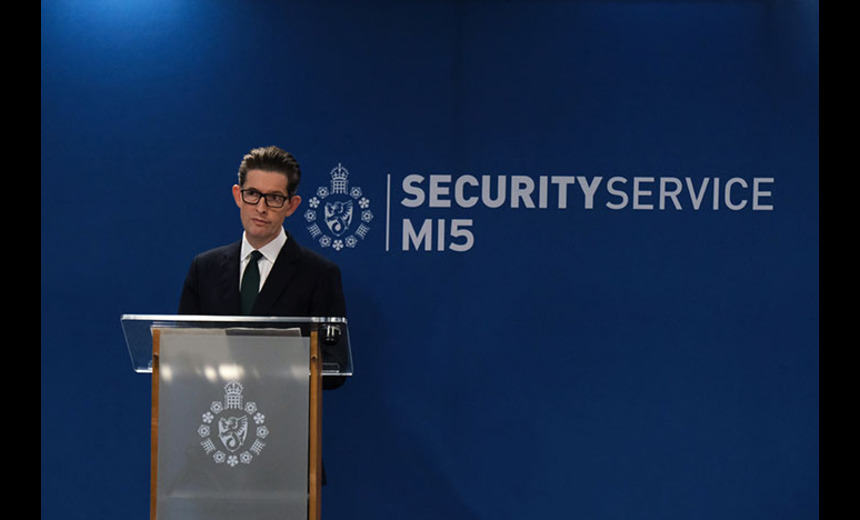Cyberwarfare / Nation-State Attacks
,
Fraud Management & Cybercrime
,
Geo Focus: The United Kingdom
Russia, Iran and China Investing in Cyber Ops, Warns MI5 Director Ken McCallum

Nation-state actors are investing aggressively in advanced cyber operations to target government information and technology in a bid to sow “mayhem on British and European streets,” warned a top British intelligence official.
See Also: Strengthening Your Security Program With Open API
Speaking at the Counter Terrorism Operations Center in London on Tuesday, British Security Service Director Ken McCallum said the United Kingdom faces offensive cyber and physical sabotage threats from Russia, China and Iran.
“They invest heavily in human intelligence capabilities and in advanced cyber operations,” the MI5 chief said. “Their targets include sensitive government information, our technology, our democracy, journalists and defenders of human rights.”
European governments have expelled more than 750 Russian diplomats since the Kremlin initiated a war of conquest against Ukraine in February 2022. “The great majority of them were spies,” McCallum said. “It’s not flashy, but it works. Kick them out, keep them out.” But a side effect is Moscow placing greater importance on cyberespionage.
Russian state actors have also turned to proxies including private intelligence and criminals. The speech from MI5 chief comes days after the U.K. National Crime Agency detailed Russian cybercrime operation Evil Corp’s work as a Russian state proxy, including hacking members of the NATO for Russian intelligence (see: Evil Corp Protected by Ex-Senior FSB Official, Police Say).
Hiring proxies is a tactic is also followed by the Iranian government. An alert from the U.K. National Cyber Security Center and the U.S. federal cyber agencies last month warned hackers tied to the Iranian government’s Islamic Revolutionary Guard Corps targeted former senior government officials, senior think tank personnel, journalists, activists, and lobbyists in the U.S. and U.K. engaged in Iranian and Middle Eastern affairs.
MI5 and the National Cyber Security Center are anticipating more cyberattacks targeting the “West’s cyber defenses,” in the future, especially from Russian state actors, McCallum said.
He also said China poses a distinct threat, especially given how trade with China underpins economic growth.
A comprehensive response to threats posed by China would be to build up resilience in the private and educational sectors, as well as “engaging with China on real opportunities where the risks can be sufficiently managed,” McCallum said.
In May, Anne Keast-Butler, director of the British intelligence agency Government Communications Headquarters, warned that China posed an “epoch-defining threat to the U.K.” Responding to the scale and complexity posed by the Chinese groups remained GCHQ’s top priority, she said (see: UK, US Officials Warn About Chinese Cyberthreat).
Then-British Secretary of State for Defense Grant Shapps in May publicly disclosed a possible Chinese hack on a U.K. defense contractor that exposed 270,000 individuals (see: Suspected Chinese Hackers Hacked UK Defense Contractor).
The government in March attributed an attack on the Inter-Parliamentary Alliance on China – an international pressure group of lawmakers dedicated to countering Beijing – to a Chinese state threat actor tracked as APT31 (see:
